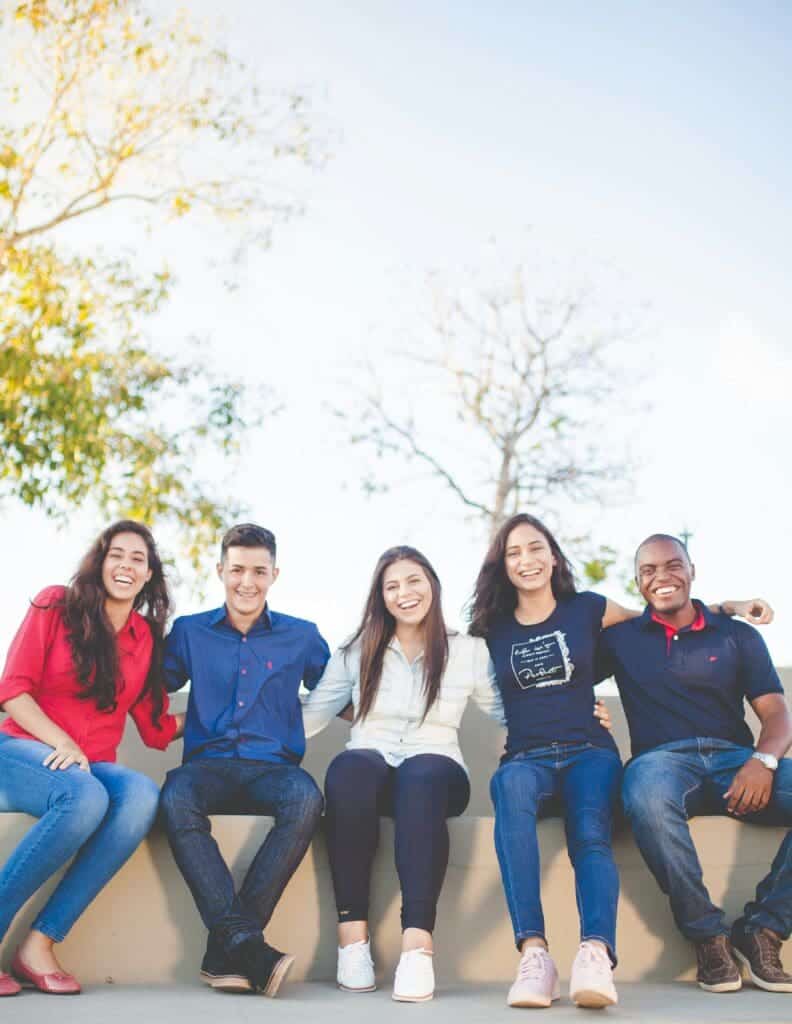Understanding Self-Confidence

Self-confidence refers to the belief in one’s own abilities and potential to succeed in various tasks or challenges. In the context of a school environment, it plays a crucial role in determining how students engage with their learning and participate in classroom activities. High self-confidence can empower students to take risks, ask questions, and express their ideas without the fear of judgment. Consequently, a confident student is more likely to embrace challenges, facilitating a more enriching educational experience.
It is essential to differentiate between self-confidence and self-esteem, as these concepts, although related, represent distinct psychological attributes. Self-esteem encompasses an individual’s overall sense of worth or personal value, which can be influenced by external factors such as social interactions and achievements. In contrast, self-confidence is narrower, focusing on an individual’s assurance in their specific skills and capacity to succeed in particular situations. This distinction is important, as students may have high self-esteem while lacking confidence in certain academic or social situations.
Understanding the significance of self-confidence in education is vital for educators and parents alike. Students with high levels of self-confidence are more likely to actively participate in group discussions, engage in collaborative projects, and seek support when needed. These behaviors contribute to a positive learning environment where students feel valued and encouraged to share their thoughts and opinions. Furthermore, self-confidence can help students cope with setbacks and failures, fostering resilience and the ability to recover from challenges. When students believe they can succeed, they are more likely to put forth the effort required to achieve their academic goals, ultimately enhancing their overall learning experience.
The Role of Self-Confidence in Learning

Self-confidence plays a pivotal role in shaping academic performance and enhancing the learning experience for students. A student who possesses self-confidence is more likely to engage proactively in their educational journey, demonstrating higher levels of motivation and perseverance. Research has consistently shown that students with robust self-belief are better equipped to tackle challenges encountered in academic settings. This is partly because they view obstacles not as insurmountable barriers, but as opportunities for growth and learning.
The relationship between self-confidence and motivation is particularly noteworthy. When students trust in their abilities, they are more inclined to participate actively in discussions, seek assistance when needed, and undertake new academic challenges. Conversely, students who doubt their competencies may shy away from participating in class or may hesitate to ask questions, which can ultimately hinder their learning process. This showcases the significant impact of self-confidence on a student’s willingness to take risks in educational environments.
Moreover, the emotional factors tied to self-confidence cannot be overlooked. Students with high self-esteem tend to cope better with stress and anxiety associated with academic pressures. They are more resilient in the face of setbacks, as their belief in their capabilities helps them to maintain a positive outlook even during difficult times. In contrast, a lack of self-confidence can lead to feelings of helplessness, which may result in disengagement from learning altogether.
In summary, fostering self-confidence in students is essential for enhancing their academic performance. By instilling a strong sense of belief in their abilities, educators can cultivate a more inspiring learning environment that encourages risk-taking, resilience, and motivation. Understanding the psychological and emotional ties of self-confidence in learning is fundamental for promoting overall academic success.
Identifying Barriers to Self-Confidence

Self-confidence plays a critical role in a student’s academic journey. However, various barriers can hinder the development of this essential trait. The first significant barrier is the fear of failure, which can create paralyzing anxiety and discourage students from participating in class or attempting challenging tasks. When students focus solely on potential negative outcomes, their willingness to take risks diminishes, significantly undermining their overall learning experience. This fear not only affects academic performance but can also extend to social interactions and personal development.
Negative self-talk is another prevalent barrier that can erode self-esteem and confidence. Students often fall into the trap of internalizing criticism and doubts, leading them to believe that they are not capable of achieving their goals. Such thoughts can become a self-fulfilling prophecy, as they may choose to underperform or withdraw from opportunities that could enhance their self-belief and abilities. Tackling negative self-talk involves recognizing these damaging narratives and replacing them with affirming, constructive statements that reflect a more positive self-image.
Comparison with peers also significantly impacts self-confidence. Students frequently compare their abilities, achievements, and appearances with those of their classmates, which can lead to feelings of inadequacy. This comparison is often fueled by social media and cultural pressures, intensifying the belief that one must meet certain external standards to be considered successful or valuable. Instead of fostering a sense of collaboration and support, these comparisons can foster envy and resentment, further eroding self-confidence.
Additionally, a perceived lack of support from teachers, peers, or family may contribute to diminished self-confidence. When a student feels isolated or unsupported, it can lead to disengagement from academic endeavors. Understanding these barriers is crucial, as recognizing and addressing them can empower students to enhance their self-confidence, subsequently improving their learning outcomes and overall school experience.
Practical Strategies to Boost Self-Confidence

Building self-confidence in a school environment is crucial for students’ overall academic success and personal development. Implementing practical strategies can significantly enhance self-assurance and ensure students can engage fully in their learning experiences. One essential approach is setting realistic goals. Students should focus on establishing attainable, specific objectives that align with their current capabilities. By doing so, they can experience small but meaningful successes that contribute to a greater sense of accomplishment.
Celebrating these small achievements is equally important. Acknowledging progress, no matter how minor, reinforces a positive mindset and fosters a sense of pride. This could include rewarding oneself after completing a challenging assignment or reflecting on improvements in public speaking skills. Recognizing these victories can provide motivation and propel students toward further goals.
Engaging in positive self-talk is another effective strategy. Students should learn to replace negative thoughts with affirming statements. For example, instead of thinking “I can’t do this,” a student may say, “I will give it my best effort.” This shift in mindset can significantly influence one’s confidence level, creating a more resilient approach to challenges.
Additionally, seeking feedback from teachers and peers is beneficial for building self-confidence. Constructive criticism can guide students in identifying areas for improvement while highlighting their strengths. Encouraging students to view feedback as an opportunity for growth rather than as a judgment can enhance their resilience and self-esteem.
In conclusion, through setting attainable goals, celebrating small victories, practicing positive self-talk, and actively seeking constructive feedback, students can adopt practical strategies that contribute to enhanced self-confidence. Incorporating these actionable steps into daily routines will allow students to progressively develop their self-assurance, ultimately enhancing their learning experience.
The Power of Positive Relationships in School

Building supportive relationships within the school environment plays a vital role in enhancing a student’s self-confidence. Strong connections with teachers and classmates can significantly influence an individual’s learning experience, fostering a sense of belonging and acceptance. When students perceive their school as a supportive community, they are more likely to develop a positive self-image and engage constructively in their educational journey.
Positive reinforcement is a crucial aspect of these relationships. Educators who provide constructive feedback and encouragement can help students recognize their strengths and areas for improvement. This acknowledgement not only boosts self-esteem but also motivates students to challenge themselves academically. Similarly, classmates who engage in collaborative efforts can create an atmosphere of trust and support. Working together on group projects or participating in class discussions can foster a sense of teamwork, allowing students to feel valued and respected within their peer group.
Moreover, mentorship plays a significant role in cultivating self-confidence among students. When teachers actively mentor their students, they provide guidance and assistance tailored to individual needs. This supportive approach can help students navigate academic challenges with greater ease, reinforcing the belief in their capabilities. Additionally, peer mentoring programs can amplify these effects, allowing older students to inspire and assist younger ones, thereby strengthening the social bonds within the school.
To foster positive relationships, students should be encouraged to communicate openly with their teachers and peers. Participation in extracurricular activities can also be beneficial, providing opportunities for students to connect with others who share similar interests. Schools should prioritize creating a healthy social environment where trust, respect, and empathy are foundational values. Ultimately, a nurturing school culture can lead to significant improvements in self-confidence, resulting in enriched learning experiences.
Incorporating Mindfulness and Self-Reflection

Mindfulness and self-reflection are critical components in the journey toward enhancing self-confidence, particularly within the school environment. Mindfulness entails being fully present and engaged in the moment, which can significantly help students manage stress and anxiety related to academic performance. One effective technique to cultivate mindfulness is through meditation. By dedicating a few minutes each day to meditative practices, students can develop a clearer awareness of their thoughts and emotions. This newfound perspective allows them to better understand their strengths and weaknesses, which is fundamental for building self-confidence.
Another beneficial practice is journaling, which encourages students to articulate their thoughts and feelings regularly. Maintaining a journal provides a safe space for students to reflect on their daily experiences, academic challenges, and personal achievements. This reflective practice fosters a sense of self-acceptance as students begin to recognize their progress over time. Acknowledging personal growth, no matter how small, can instill a sense of accomplishment, reinforcing confidence in one’s abilities.
Furthermore, students can engage in self-assessment exercises. These exercises may include setting personal goals, evaluating their learning styles, or identifying specific skills they wish to improve. By systematically assessing their performance and reflecting on both successes and areas requiring development, students cultivate a mindset that embraces growth rather than focusing solely on setbacks. This constructive self-evaluation not only enhances self-awareness but also empowers students to take proactive steps toward improvement, thereby enhancing their self-esteem and overall confidence.
In summary, integrating mindfulness practices and self-reflection techniques in the daily routines of students plays a pivotal role in building self-confidence. By engaging in meditation, journaling, and self-assessment, students can gain vital insights into their capabilities and develop a more resilient self-image, which can lead to a fulfilling educational experience.
Overcoming Setbacks and Resilience Building

Resilience is a crucial factor in developing self-confidence, particularly within the educational environment. Students are often faced with a variety of academic challenges that can lead to feelings of frustration and self-doubt. However, cultivating resilience enables learners to bounce back from these setbacks, ultimately reinforcing their self-esteem and belief in their abilities. Understanding that failure is an inevitable aspect of the learning process allows students to approach each challenge with a healthier mindset.
One effective strategy for managing failure is to embrace a growth mindset. This concept, developed by psychologist Carol Dweck, emphasizes the belief that abilities and intelligence can be developed through dedication and hard work. By adopting this perspective, students view setbacks not as reflections of their capabilities but as opportunities for growth and improvement. Encouraging students to analyze what went wrong and identify specific areas for enhancement fosters a proactive approach toward future challenges.
Learning from mistakes is another pivotal aspect of resilience building. When students encounter difficulties, it is essential to guide them in evaluating their experiences constructively. Rather than allowing negative emotions to cloud their judgment, they should focus on the lessons learned and how those lessons can be applied moving forward. This reflective practice not only reinforces the idea that mistakes are a natural part of learning but also strengthens their capacity to handle similar situations in the future.
Moreover, creating a supportive learning environment can significantly enhance a student’s ability to overcome setbacks. Encouragement from teachers, peers, and family can foster a sense of belonging and affirmation that might mitigate feelings of isolation when failures occur. By establishing a culture that celebrates effort and resilience, schools can empower students to face obstacles with confidence, ultimately enhancing their overall learning experience. In conclusion, building resilience in the face of setbacks is integral for maintaining self-confidence among students, paving the way for a more successful academic journey.
The Long-Term Impact of Self-Confidence on Education

Self-confidence is a fundamental component of a student’s educational journey, shaping not only their current academic performance but also influencing their long-term success in various areas of life. When students believe in their abilities, they are more likely to engage actively in their school environment, participate in discussions, and take initiative in their learning. This proactive attitude, cultivated through self-confidence, helps foster an interactive and immersive learning experience, which can lead to a deeper understanding of subjects and improved academic outcomes.
The effects of self-confidence extend beyond the classroom. Students who possess a strong sense of belief in themselves and their capabilities are often more resilient in the face of challenges. They tend to view obstacles as opportunities for growth rather than insurmountable barriers. This mindset not only enhances their academic journey but also shapes their approach to lifelong learning. Individuals with high self-confidence are inclined to pursue additional education and training throughout their lives, adapting to changing career landscapes and striving for continuous personal development.
Moreover, self-confidence has a significant impact on career prospects. Employers frequently seek candidates who exhibit confidence, as it reflects both competence and the potential for leadership. A strong sense of self-awareness and belief can propel students into advanced educational programs and professional paths that they might not have considered otherwise. The willingness to take calculated risks, to network, and to advocate for oneself are vital skills fostered by self-confidence.
In conclusion, nurturing self-confidence in students is not simply about improving grades; it is an investment in their future. By cultivating this essential trait during their educational experience, we are equipping them with the tools necessary for lifelong learning, career success, and personal achievement. The long-term benefits of self-confidence, therefore, resonate far beyond the confines of the classroom, influencing all aspects of a student’s life and opening doors to a world of opportunities.
Conclusion: Your Confidence Journey

Building self-confidence in school is an essential and multifaceted endeavor that significantly impacts both personal development and academic performance. Throughout this guide, we have explored various strategies and approaches that can assist students on their journey to enhance their self-confidence. From fostering a positive mindset and setting achievable goals to seeking support from peers and educators, each element plays a crucial role in nurturing a confident self-image.
It is important to recognize that the journey of building self-confidence is not a finite process but rather an ongoing commitment. Students should view this quest as a continuous evolution, where successes and challenges alike contribute to their overall growth. As students strive to cultivate their confidence in different aspects of school life—including public speaking, group projects, and social interactions—they will discover that each experience strengthens their capacity to trust in their abilities.
Moreover, engaging in reflective practices can help reinforce these skills. By regularly assessing their progress, students are encouraged to celebrate their accomplishments and identify areas for improvement. This introspective approach fosters resilience, allowing them to navigate setbacks without diminishing their self-esteem. Encouraging self-compassion during difficult times further promotes a healthier relationship with their self-confidence, reminding students that growth often comes through facing adversity.
In light of these considerations, it is imperative for students to adopt a proactive approach to nurturing their self-confidence. By utilizing the strategies outlined throughout this guide and staying committed to personal development, they will not only enhance their academic capabilities but also build a solid foundation for future success. Remember, the journey to self-confidence is unique for everyone, and embracing this journey will lead to continued growth and fulfillment.

